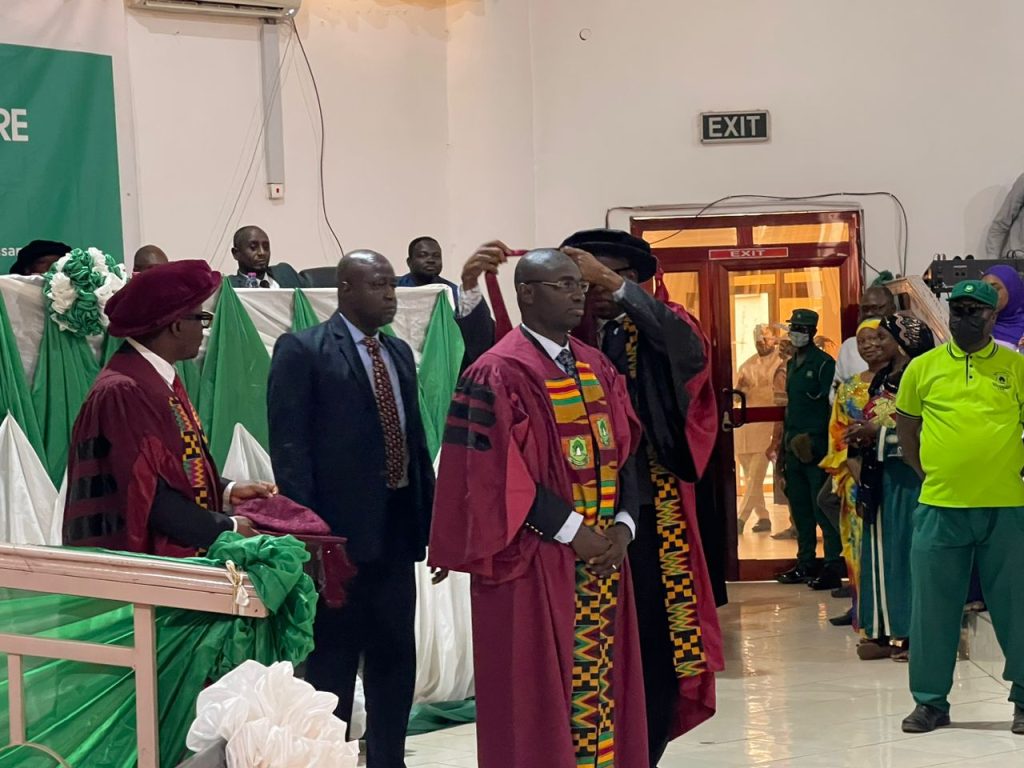|
Getting your Trinity Audio player ready...
|
Professor Paul Kwame Nkegbe, Dean of Graduate School at the University for Development Studies (UDS), Tamale, has emphasised the need for Ghana to adopt an education model where policies and programmes are developed through collaboration between academia and the corporate world.
He explained that the corporate sector understood the skills it required, and its direct involvement in designing educational policies and programmes would help align graduates’ competencies with industry needs. Prof. Nkegbe, made this remark during his inaugural lecture as a full Professor of Applied Economics, delivered as part of the 18th Professorial Inaugural Lecture, held in Tamale.
He said currently, the private sector bemoaned the lack of match between the skills required and what graduates usually possessed, saying, it was important to consider repackaging educational programmes to directly respond to industry demands. The event, chaired by Prof. Seidu Al-Hassan, Vice-Chancellor of UDS, brought together stakeholders from academia, religious and traditional authorities, and other sectors of the economy.
The lecture, themed: “Youth Bulge and Unemployment: Evidence to Action,” highlighted the importance of well-structured government employment initiatives with clear exit strategies. Prof. Nkegbe stressed that these strategies should help beneficiaries transition into the mainstream job market, coupled with adequate infrastructure, they could serve as signaling mechanisms to bridge the information gap between job seekers and potential employers, ensuring the long-term sustainability of employment programmes.
He advocated the institutionalisation of robust data collection and management systems to track employment trends and assess the impact of interventions. “Employment-related institutions should build data management systems that are both frequent and detailed to capture information across various sectors of the economy,” he said.
In spite of fiscal constraints and rising debt levels in Ghana and other Sub-Saharan African countries, Prof. Nkegbe urged government to carve out space for long-term, high-impact investments in employment creation policies. “In a tight fiscal environment, it is essential to prioritize policies that will drive sustainable job creation and contribute meaningfully to economic development,” he emphasised.
Source: GNA


